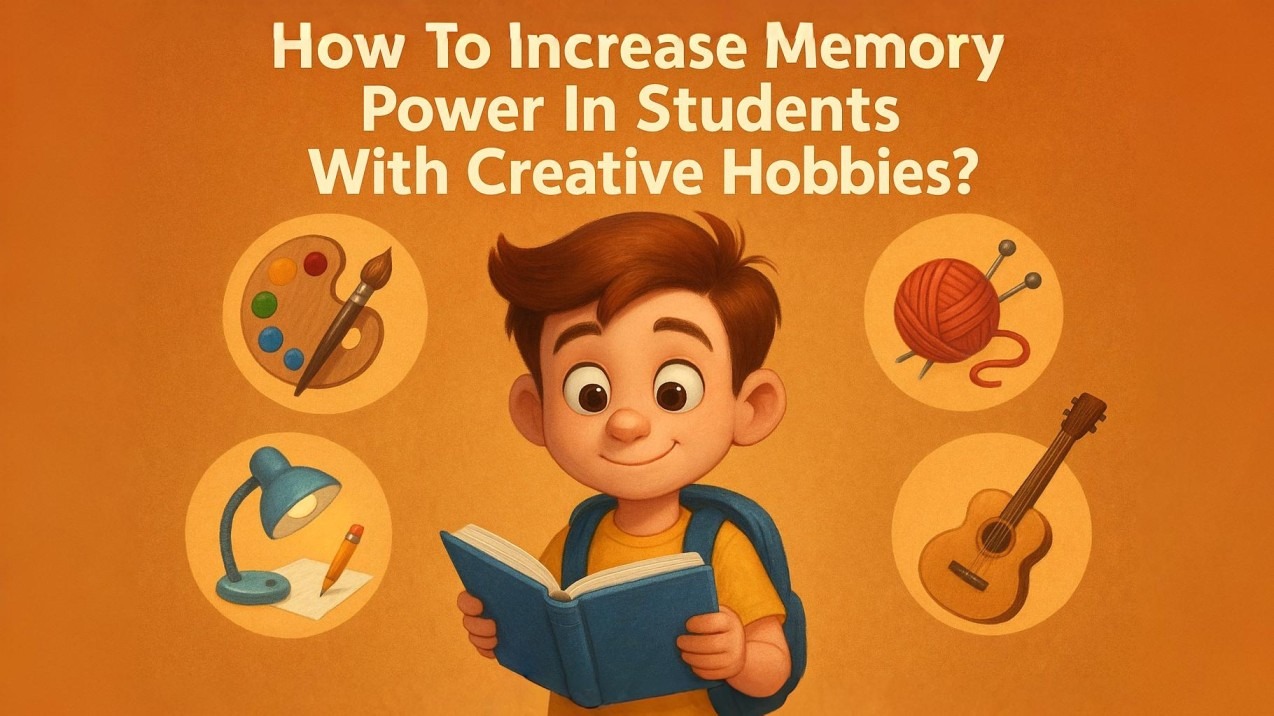Loading advertisement...
16-07-2025

Creative hobbies like art, music, storytelling, and puzzles boost students' memory power by improving focus, imagination, and brain activity.
Memory is at the heart of learning. From remembering multiplication tables to understanding history timelines and scientific terms, memory affects how students absorb, retain, and use information. While traditional methods help, creative hobbies can unlock the brain’s full potential in a fun and stress-free way.
When students draw, they visualize shapes, colors, and details — this strengthens visual memory and spatial thinking.
Let students illustrate science diagrams, storyboards, or timelines.
Use mind maps and color-coded notes for better visual organization.
Encourage daily sketching or journaling with drawings.
Ask students to draw and label parts of a plant instead of memorizing from the book. This visual connection helps retention.
Music stimulates both sides of the brain, improving auditory memory and emotional intelligence. Learning through rhythm and repetition helps store information deeply.
Create songs for formulas, definitions, or grammar rules.
Use music in the background during calm study sessions.
Encourage students to play an instrument or join a music group.
Turn multiplication tables into catchy tunes — kids remember songs more easily than plain text.
Storytelling helps students remember events in order, think critically, and express ideas creatively. Reading expands vocabulary and imagination — both essential for brain growth.
Ask students to retell stories or make alternate endings.
Use reading games and “what happens next?” activities.
Encourage regular reading habits with book clubs or library visits.
After reading a story, ask students to retell it in their own words or act it out — this activates memory and comprehension.
Logic-based games improve critical thinking, memory, and focus. These include Sudoku, memory cards, crosswords, matching games, and strategy-based board games.
Add 10 minutes of puzzle time to daily routines.
Use mobile apps like Lumosity or Brainwell for brain training.
Keep puzzle books and games handy in classrooms or at home.
Create a “Memory Monday” where students solve riddles or play match-the-word games related to their syllabus.
Acting out lessons helps students internalize and recall facts. It also improves confidence, collaboration, and public speaking — valuable life skills.
Organize classroom skits based on textbook topics.
Allow students to role-play famous personalities or historical figures.
Use props or costumes to make it more engaging.
Students can act out the water cycle (evaporation, condensation, rain) in a short skit — turning abstract ideas into real memory.
Mindfulness, relaxation techniques, and low-pressure creative hobbies reduce anxiety — a major blocker of memory and learning.
Try mandala coloring, light yoga, or journaling.
Use guided meditation or deep breathing before exams.
Let students enjoy unstructured creative time weekly.
Encourage creativity at home and school — not just academics.
Celebrate effort, not just results, in creative tasks.
Mix study and fun to prevent burnout and improve memory naturally.
Offer a variety of hobbies to discover what clicks with each child.
Creative hobbies are not just pastimes — they are powerful tools to enhance memory and learning. Whether through drawing, singing, puzzles, or acting, students can improve their cognitive skills, retain more information, and enjoy learning in a whole new way.
✅ Stay connected with Skool Guru for more educational tips, exam strategies, and academic guidance.
📞 Need help? Contact our mentors today!
Visit: www.skoolguru.in